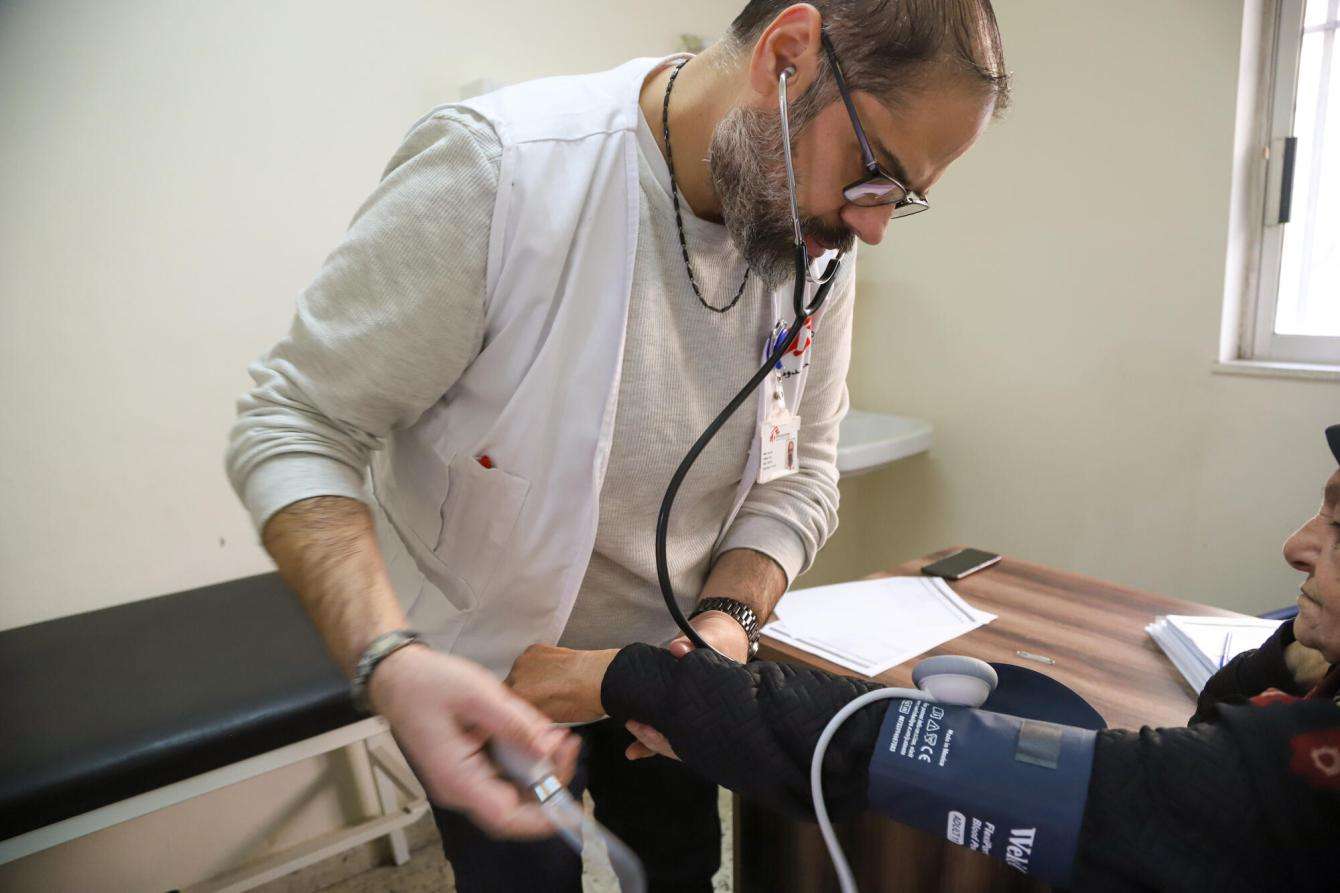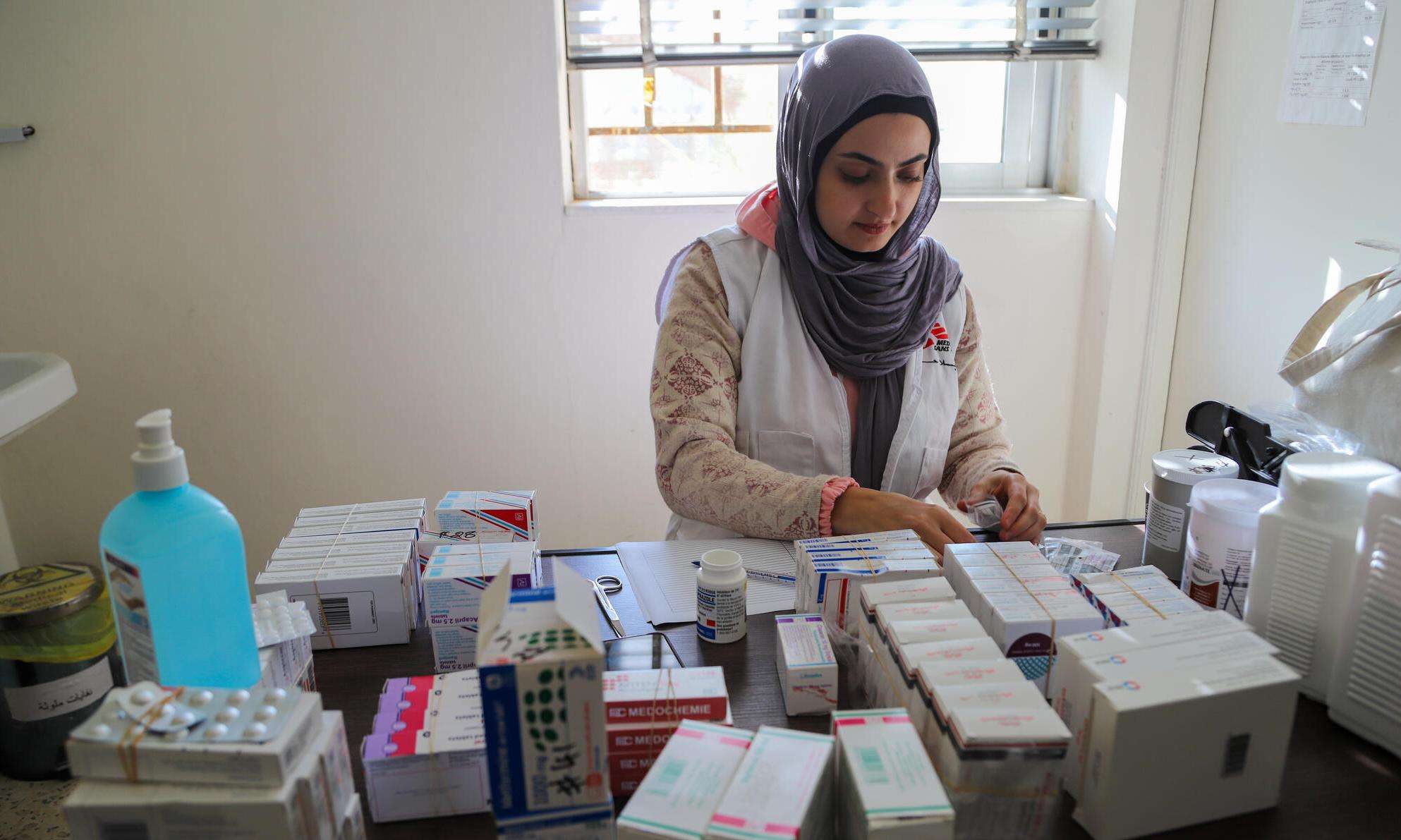Since the start of the Israel-Gaza war, escalating military activity along Lebanon’s southern border has forced thousands of people in border towns to flee north or to major cities.
Many of the people displaced in Lebanon need essential relief items, while others have run out of their regular medications. In response, Doctors Without Borders/Médecins Sans Frontières/ (MSF) has deployed a mobile team to help provide displaced people with health care.
"People need mattresses, clothes, and medications,” said Abbas Chite, who is from Kfarkila in south Lebanon. “We left everything behind when the bombardment became heavy. We can’t even go back to get our medical prescriptions or clothes."
Of more than 70,000 people displaced from the south of Lebanon, according to the International Organization of Migration, 1,000 are living in shelters, while the rest are living with host families or in rental housing. Most have lost their source of income. Displaced children are showing signs of psychological distress and anxiety, including heightened fear and sleep disorders, according to the World Health Organization (WHO).

A fragile health system buckles under economic crisis
The armed escalation compounds an ongoing humanitarian crisis in Lebanon and is intensifying people’s existing needs. The country is in its fourth year of a severe economic crisis that has pushed two out of every three citizens into poverty, heavily impacting their ability to afford basic goods and services, including food and health care.
Abbas used to work in the construction industry, but now there is no work available, leaving him unable to earn a living and support his family. "I work in construction, but everything has stopped since the beginning of the [economic] crisis," he said.
The conflict, coupled with the absence of assurances to safeguard medical staff and facilities from armed confrontations, are creating a challenging environment for medical teams to operate safely and securely. WHO reports three attacks on health care facilities since the clashes began, impacting two ambulances, one hospital, one primary health care center, and five health workers. Additionally, due to insecurity and armed clashes, two primary health care centers in Marjayoun and Bint Jbeil, south Lebanon, were forced to close.
How MSF is supporting health care and emergency response in Lebanon
To ensure that displaced people have continuous access to health care, MSF has deployed a mobile medical team to support two health centers in Nabatieh district, south Lebanon, by providing care for patients with chronic diseases and psychological first aid.
Lebanon’s health care system, like other sectors in the country, was already overburdened by the economic crisis. Many health care workers have emigrated since the start of the crisis, and medical facilities are working with limited resources. Local health centers, which are already at capacity, could face increasing pressure as they contend with the growing medical needs of people displaced from the south.
"When people are displaced, they are forced to leave their homes abruptly, interrupting their treatment, especially those with chronic diseases,” said MSF mobile team member Dr. Aida Hassouni. “With uncertainty about when they can return, we're here to bridge that gap by offering chronic disease care. This ensures that individuals can continue their treatment until they can resume their regular lives."
MSF is also supporting local efforts to strengthen hospitals’ emergency preparedness. Since October, our teams have positioned 10 tonnes of medical supplies in various hospitals and medical facilities in Lebanon. We have also provided training to hospital staff across Lebanon on emergency trauma care and the management of mass casualty events, in accordance with the Ministry of Public Health’s emergency preparedness and response plan and in collaboration with other health partners. In three weeks, our teams trained more than 100 medical personnel in nine hospitals.




